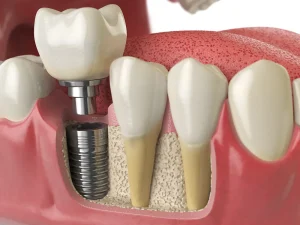Understanding and Managing Common Mental Health Disorders
3 min read
Your mental health impacts on everything from emotions and mood, thoughts and relationships to your physical well-being.
Mental illnesses include conditions like major depression, bipolar disorder and schizophrenia. Treatment options for these conditions include psychotherapy and medications as well as self-help strategies such as social support networks or meaningful paid or volunteer activities that provide therapeutic benefit.
Depression
Depression can be one of the most serious mental health conditions, leading to relationship and family conflicts, poor work performance and substance abuse. Although depression cannot always be effectively treated immediately, most individuals improve with lifestyle modifications, talk therapy (psychotherapy) or medication; almost all find relief from their symptoms.
Depression can be caused by factors including genetics, early life experiences and social and environmental circumstances. Depression may run in families; however this does not inevitably mean every child of depressed parents will develop the condition themselves. Depression is more prevalent during pregnancy and after childbirth (known as the perinatal period). People experiencing psychotic depression are at an increased risk, experiencing hallucinations and delusions as part of the illness.
Psychotherapeutic treatments for depression often combine psychotherapy and medications; finding the appropriate therapy or combination can take some trial-and-error.
Anxiety
Feelings of anxiety, fear or panic can be normal parts of being human; however, when these feelings begin interfering with daily living they should be addressed immediately and professional help should be sought.
Anxiety disorders are characterized by excessive, persistent and out-of-control anxiety or fear that is experienced on a daily basis. The extent of your worries far outstrips their actual danger level and may force you to avoid certain situations altogether.
Anxiety disorders are caused by many different things, from major traumatic events like death or serious illness to ongoing stressors such as family and work issues, financial concerns and medical or health problems. Personality traits also play a part – those with certain personality types tend to be more predisposed towards anxiety disorders than others. Certain medical conditions like thyroid disease or heart arrhythmias may aggravate symptoms. Treatment options include medication and psychotherapy (also called talk therapy). Cognitive behavioral therapy teaches individuals how to replace negative or worrisome thoughts with more constructive ones while exposure therapy provides one effective tool in controlling anxiety symptoms.
Obsessive-Compulsive Disorder
OCD (Obsessive Compulsive Disorder) affects over one hour per day of their lives, leading to intrusive thoughts (obsessions) and compulsive behaviors that cause distress and interfere with daily living activities. Obsessions/compulsions often take up more than their fair share of energy and interfere with everyday tasks and daily functioning.
Obsessions often stem from fear of contamination or harm from germs, dirt or blood; threats to loved ones; or worries over losing money or important items. Compulsions are repeated behaviors or mental acts a person performs to alleviate the anxiety caused by obsessive thoughts – like washing hands repeatedly or checking locks often enough.
Cognitive Behavioral Therapy (CBT) and Exposure and Response Prevention (ERP) may help relieve OCD symptoms. A trained therapist can teach you to confront your fearful situations while resisting the urge to perform compulsive behaviors – for example by staying in an otherwise unpleasant room smelling of rotten food while telling yourself “it’s just a thought”. Antidepressants and antipsychotic medication may also be used as effective solutions.
Post-Traumatic Stress Disorder
Experience of or witness to traumatic events can make people emotional. However, if these feelings last more than 30 days and disrupt work, school, or relationships, post-traumatic stress disorder (PTSD) might be present.
People suffering from posttraumatic stress disorder (PTSD) often relive trauma through flashbacks or nightmares long after it has ended, avoiding people and places that bring up memories of what occurred, as well as having strong negative responses to everyday things like loud noises or unexpected touches that remind them of it.
Psychiatrists or psychologists specially trained in diagnosing mental illnesses can provide assistance for PTSD. They might suggest talking therapy techniques such as trauma-focused cognitive behavioral therapy (CBT), eye movement desensitisation and reprocessing (EMDR), supported trauma-focused computerised CBT or medications like antidepressants and an antipsychotic such as Venlafaxine to ease anxiety and hyperarousal. Sometimes PTSD develops alongside depression or alcohol or drug dependency issues.






